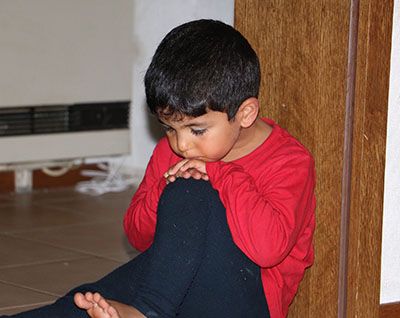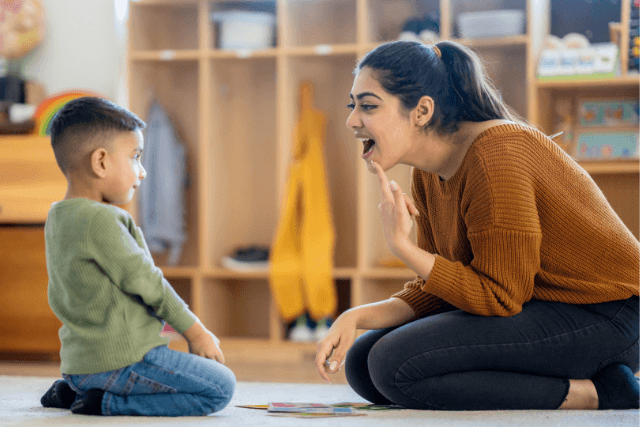Helping Children Cope After Traumatic Events: A Guide For Parents

As I combed through my daughter’s hair before school, I began what has become an all-too-familiar conversation. “Something really bad happened yesterday, and I think you might hear about it at school. A man with a gun shot a lot of people in a church and some of them died . . . “After providing basic information to my not yet 10-year-old daughter about this horrific incident, I gave her a chance to ask questions. She was initially silent, and then asked, “why,” which is, of course, the question I can’t really answer.
Many parents struggle with what to tell their children about mass shootings such as the recent one in Sutherland Springs, Texas or the shooting last month in Las Vegas (or the many others before). As parents, we want to protect our children from the violence in our world, to allay their fears, to promise them that they are safe. These tasks have become increasingly difficult as we are bombarded by a seemingly endless stream of traumatic events, and many of us feel exhausted and overwhelmed. However, there are strategies parents can use to provide children with support and reassurance, to encourage health coping, and to take care of themselves.
Talk with your child. For parents, deciding whether and when to tell their children about a mass shooting can be challenging. Some factors that may influence your decision include the age and developmental level of your child, whether your child has a personal connection to the incident or a personal trauma history, and the likelihood that your child will find out elsewhere. Some children will learn about mass shootings (or other violent events) from a news program, peers, or even a teacher. In these situations, it is still important for parents to talk with their children. Although your child may have heard something about the incident, they will likely have questions and concerns.
- Find a quiet moment: For many busy families, finding time to have such an important conversation can be hard, so try and choose a time when you won’t be rushed or interrupted by other demands.
- Be a good listener: The most important message for your child is that you are available and willing to listen. You do not have to know the “right” thing to say, and in fact, it’s unlikely that there is a right thing to say in situations such as these.
- Be open to questions: Start the conversation by asking your child what she heard and how she is feeling. Let your child know that you are open to answering questions, but recognize that you may not have all the answers . . . and that is o.k.
- Tell the truth: Use this opportunity to correct any misperceptions your child may have and to answer questions, and then let them know you are available if they want to talk more at a later time. Lay out the facts at a level they can understand but avoid graphic details.
- Offer reassurance: Even when parents feel helpless, it is important to reassure children that you will do everything you know how to do to keep them safe.
Maintain routines and model self-care. It is important to keep home a safe place, as much as is possible. When parents are feeling overwhelmed, though, it can be difficult to maintain routines with regard to eating, sleeping, and spending time together.
- Keeping to your family’s typical schedule: Keep to regular meal times, bed times, and daily routines. This is reassuring for your child, regardless of his age, and is also a great way to exercise self-care.
- Model health ways to manage distress: Make sure you eat healthy meals, get enough sleep, exercise, and use other healthy coping strategies (e.g., taking deep breaths when feeling overwhelmed). By taking care of your own needs, parents can be more available to support their children.
- Take a news break: Understandably, after an event such as the recent mass shooting, many of us binge-watch the news or continuously read updates on our phones. Older children and adolescents may also seek out information from sources such as television or the internet. Constant exposure can actually increase adults’ and children’s anxiety and fearfulness. Taking a “news break” is important for parents’ well-being and it also models an important coping strategy for children.
Watch for signs of anxiety. It is normal for children (and adults) to experience some anxiety and increased fear, as well as emotions such as shock, sadness, and anger. Younger children may show increased clinginess, changes in eating and sleeping patterns, or withdrawal. Older children and adolescents may fear going to school or other activities, have trouble paying attention, complain of physical symptoms, start arguments, or act younger than their age. It is important for parents to know that these sorts of reactions are typical during the first 2 – 4 weeks after a traumatic event. If your child continues to show these difficulties after a month has passed, they may need more help coping.
Find something positive to do. After a tragedy, children can find comfort and a sense of meaning in doing something to help.
- Contribute to efforts to support victims: After tragedies such as the recent mass shooting in Texas, many organizations collect donations to support victims, their families, and the affected community. Older children and adolescents may choose to donate from their own money or help parents research opportunities for a family donation.
- Make thank you cards for first responders: It is important for children to recognize that there are helpers in our world who respond after traumatic incidents. Drawing pictures or writing thank you notes to law enforcement, doctors and nurses, and other first responders can be a positive way to channel the inevitable emotions after a mass shooting or other violent event.
- Volunteer through faith groups or community organizations: There are often opportunities to volunteer to help victims of a shooting or to become involved in efforts to prevent future violent incidents. Families with ties to faith groups or community organizations can find comfort from working with others to provide care to victims or engaging in positive actions to foster social change.
For families struggling to respond after this recent mass shooting, please see our list of additional resources below. If your child continues to experience intense anxiety, fearfulness, or problematic behaviors, the Austin Child Guidance Center is here to help. We offer a Walk-In Clinic on Tuesdays (5 – 7:00) and Fridays (2 – 4:00), as well as individual and family therapy.
- In the Aftermath of a Shooting (American Psychological Association)
- How to Talk to Children about Difficult News (American Psychological Association)
- Tips for Talking with and Helping Children and Youth Cope after a Disaster or Traumatic Event (SAMHSA)
~Julia K. Hoke, Ph.D., Licensed Psychologist, Director of Psychological Services at the Austin Child Guidance Center and mother of two.


